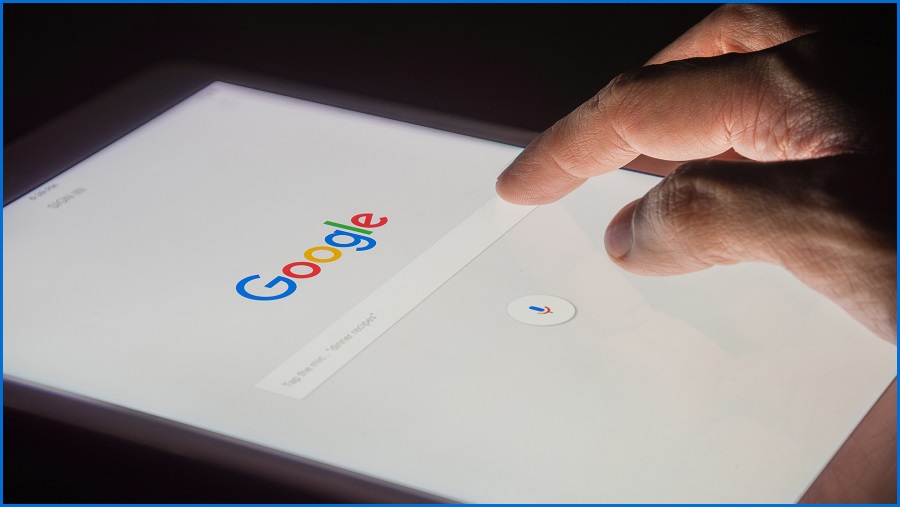The US government has started legal proceedings against Google for monopolistic and anticompetitive behaviour around its search services.
US Attorney General William Barr and attorneys general from 11 US states filed the complaint against Google early on Wednesday morning, primarily arguing that the tech giant muscles out its search engine competitors through exclusionary agreements with other technology companies.
“Google pays billions of dollars each year to distributors – including popular-device manufacturers such as Apple, LG, Motorola, and Samsung … and browser developers such as Mozilla, Opera, and UCWeb – to secure default status for its general search engine and, in many cases, to specifically prohibit Google’s counterparties from dealing with Google’s competitors,” the court filings said.
“Some of these agreements also require distributors to take a bundle of Google apps, including its search apps, and feature them on devices in prime positions where consumers are most likely to start their internet searches.”
The attorneys general argue that the combination of agreements and Google’s own products, such as the Chrome browser, give the company control of the lion’s share of general search activity in the US.
“Google has thus foreclosed competition for internet search,” the court filings argue.
“General search engine competitors are denied vital distribution, scale, and product recognition – ensuring they have no real chance to challenge Google.
“Google is so dominant that ‘Google’ is not only a noun to identify the company and the Google search engine but also a verb that means to search the internet.”
The attorneys general are seeking to force Google to stop making deals that seek to squeeze its competitors – the likes of Microsoft Bing, the privacy-focused DuckDuckGo, or tree-friendly Ecosia – out of the market.
This lawsuit, which come from the Trump-appointed US Attorney General and attorneys general from Republican states, follows a massive report from the Democrat-led House Judiciary Subcommittee on Antitrust which slammed Silicon Valley’s big four (Amazon, Apple, Facebook, and Google) for a raft of anticompetitive behaviour.
In a statement, Attorney General Barr said competition between internet companies was “vitally important”.
“Today’s challenge against Google — the gatekeeper of the Internet — for violating antitrust laws is a monumental case both for the Department of Justice and for the American people,” Barr said.
“This lawsuit strikes at the heart of Google’s grip over the internet for millions of American consumers, advertisers, small businesses and entrepreneurs beholden to an unlawful monopolist.”
You can always change your search engine
Google unsurprisingly disagreed with the complaint, making a public statement in a blog post that called the lawsuit “deeply flawed”.
In that post, the company’s Senior Vice President of Global Affairs, Kent Walker, likened the practice of paying companies to put Google Search first to paying for more prominent shelf-space in a supermarket.
“For digital services, when you first buy a device, it has a kind of home screen ‘eye level shelf,’” Walker said.
“On mobile, that shelf is controlled by Apple, as well as companies like AT&T, Verizon, Samsung and LG. On desktop computers, that shelf space is overwhelmingly controlled by Microsoft.
“So, we negotiate agreements with many of those companies for eye-level shelf space. But let's be clear—our competitors are readily available too, if you want to use them.”
Samsung, LG, and a majority of other mobile phone manufacturers run the Google-owned Android operating system.
In 2018, the EU whacked Google with a massive $6.8 billion fine for using Android “as a vehicle to cement the dominance of its search engine”.
Using animated GIFs, Walker tried to demonstrate how easy it is for users to change their default search engines on mobile and desktop.
“The bigger point is that people don’t use Google because they have to, they use it because they choose to,” Walker said.
“This isn’t the dial-up 1990s, when changing services was slow and difficult, and often required you to buy and install software with a CD-ROM.
“Today, you can easily download your choice of apps or change your default settings in a matter of seconds – faster than you can walk to another aisle in the grocery store.”
Gabriel Weinberg, CEO and founder of DuckDuckGo – a search engine that, as Walker points, you can easily make your default – welcomed the case being brought against Google.
“While Google’s anti-competitive practices hurt companies like us, the negative impact on society and democracy wrought by their surveillance business model is far worse,” he said.
“People should be able to opt out in one click.
“The endless data collection and behavioral targeting originated by Google and forced onto the world through its search engine monopoly has led to discrimination, polarisation, and the widespread false belief that getting privacy online is difficult”.










